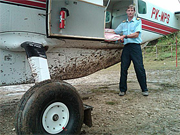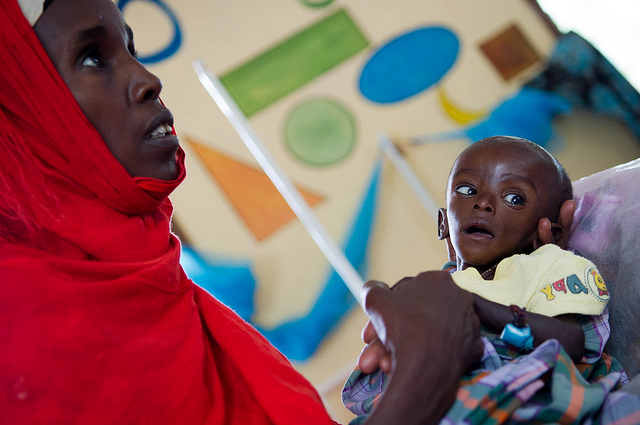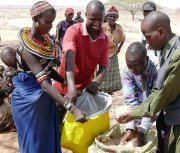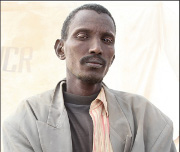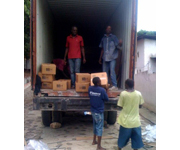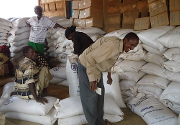Kenya (MNN) ― Tens of thousands of refugees fleeing famine and fighting in Somalia are arriving in Kenya where refugee camps are now reaching capacity.
In a press briefing Friday, UNHCR spokesperson Adrian Edwards said the UN had plans to open a new camp on Saturday to ease overcrowding. "The new site, known as Kambioos, is situated close to the Hagadera camp and has a planned capacity of 90,000 people. Tents and infrastructure are being put in place and will provide much-needed shelter and services."
Roughly half of the promised monies to fund the relief programs have come in, compounding the tight budgets strained by multiple disasters this year. Keith Wright with
Food For the Hungry says, "As we look at the situation in Somalia, gearing up to work with what is reaching up to almost 400,000 Somalis that have come over into Kenya, we can reach them through our base in Kenya."
For Somalia, the exodus is the visible impact of a perfect storm. "It's really just a result of cumulative years of not quite enough rain, the flora kind of wears out, and then the bottom really dropped out." Wright says the terrorist aspect of the scenario didn't help. Even though al Shabaab cleared out of the capital city, the real problem was in the South. However, as aid groups tried to get there with supplies, they discovered that "humanitarian workers aren't just 'at risk' -- they're targeted. Any humanitarian supplies are targeted as well."
Increasing security risks meant that some aid groups had to pull back. However, because FH has been working in both Ethiopia and Kenya for years already, "We're very fortunate that the response is well coordinated. We intentionally partner with the government and other agencies to make sure that the needs were being met."
Although Ethiopia and Kenya share borders, how have they been able to weather the crisis so much better? Part of the reason lies in the Somalia's 'failed state' status. Wright explains, "It's so chaotic. Without that fundamental building block of stability, there's really no way to prepare for a drought like this."
Wright notes that their teams are involved in interventions at 34 health facilities and 102 outreach centers in Kenya. In Ethiopia, they're doing food distributions for 72,199 people living in the Amhara region and South Nations. "There are about 3.7 million people in the region who need immediate lifesaving support. That's the first tier of food assistance in Ethiopia and Kenya. We're also monitoring children under five, identifying any severe cases of malnutrition."
However, because of the longstanding investment in both Ethiopia and Kenya, "Working with church leaders, working on biblical worldview, working on market access, helping nutrition for children, water points -- all those things strengthen a community's resiliency over time," which means both of the regions where they have projects are able to weather the crisis better than they would have been able to do ten years ago.
The hope of Christ comes into play, woven into every part of their response. Their teams are excited because "with the Somalis, that's a tremendous opportunity. Frankly, at this level of crisis, it's feeding the hungry and clothing the naked. That's tier 1 and that is the love of Christ. That's what we're called to do, but it does open up opportunities."
The famine and drought are considered among the worst in the last half century. What can you do? "The main thing is be aware, and pray. These people need absolute grace. These are lives at risk, and then responding materially to organizations like FH and others who are on the frontlines makes a huge difference."

